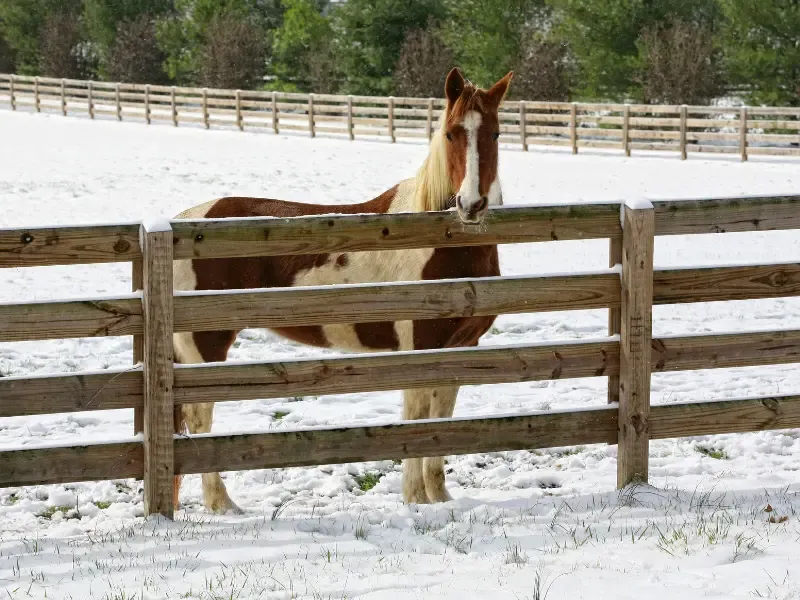
Keeping Your Horse Hydrated
We understand that horses can face challenges with drinking enough water daily as our season warms from spring into summer. Knowing how to tell if your horse is dehydrated year-round is a core part of equine care, especially during extreme temperature changes. The temperature can rise or drop as weather systems push in. These dramatic changes also commonly follow barometric changes in the weather.
It is easy to overlook water consumption for your horse during these times. In the warmer seasons, horses have access to pastures with forage that contain 60-80% moisture, which helps meet their daily water requirements. Additionally, you are more likely to remember to give them plenty of water at warmer temperatures. Although each horse is unique, mature horses consume between 10 and 15 gallons of water daily during winter.
How to Tell If Your Horse is Dehydrated
You can perform a few simple checks to ensure that your horse is properly hydrated. One of these is called the capillary refill time (CRT), which involves pressing your finger against the gums and observing how long it takes for the tissue to go from pale white to the usual pink. A healthy horse should have moist gums and a CRT of less than two seconds. Another check you can do is to gently pull their skin away from the body and observe how quickly it snaps back into place. The skin should snap back immediately. If you notice that your horse’s CRT is longer than two seconds or their skin is slow to snap back, it may indicate dehydration.
Tips to Ensure Your Horse Stays Hydrated Through Changing Weather Systems
It’s important to keep your horse hydrated. Here are some tips to help:
- Temperature Matters: Horses may hesitate to drink hot or cold water, so it’s best to offer them clean and cool water around 45-65 degrees. This will encourage them to drink more water.
- Regular Monitoring: Check water buckets and troughs regularly, ensuring they are clean of debris, and are refreshed at least once a day.
- Salt Intake: Provide access to a salt block. Salt encourages horses to drink more water, and ensuring adequate salt intake is crucial for maintaining electrolyte balance.
- Electrolyte Supplements: Consider supplementing your horse’s diet with electrolytes. These can help replenish vital minerals lost through increased urine production, promoting proper hydration.
- Strategic Feeding: Focus on feeding high-quality forage. Forage contains a significant amount of water. Soaked hay or hay cubes are also good options.
While changing weather brings its challenges for horse owners, ensuring your horse stays adequately hydrated is crucial for their overall health. If they remain in a state of dehydration, they could run the risk of impaction colic. Colic is the #1 killer of horses, and increasing their water intake is the best way to decrease the risk. A horse not drinking enough water can experience impaction colic in as few as 48 hours. By paying attention to your horse’s water intake, you are increasing their overall well-being.
If you need assistance with your horse’s water intake, we encourage you to contact us at High Caliber Performance. Our equine veterinary team knows the best methods to ensure your horse stays healthy all year. To schedule an appointment, contact (281) 743-7549.